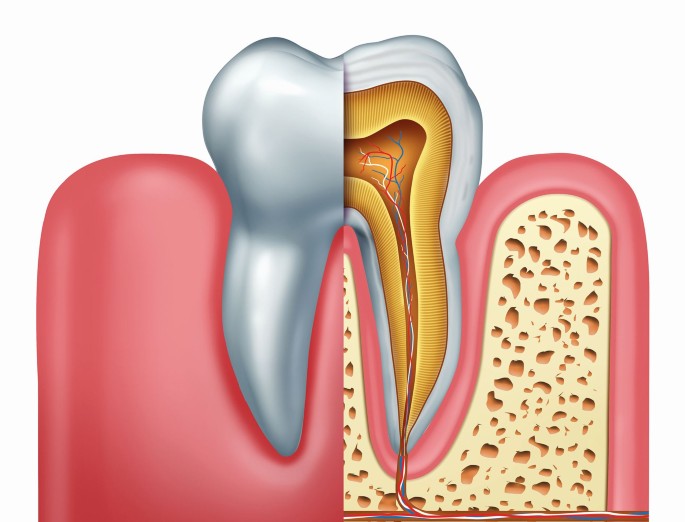
Understanding Root Canal Treatment: A Comprehensive Guide
Root canal treatment is an essential dental procedure that eliminates inflamed or infected pulp from within a tooth. After the pulp is extracted, the inner part of the tooth is thoroughly cleaned and disinfected and subsequently filled and sealed. This process is vital for eliminating bacteria from the infected root canal, preventing reinfection, and ultimately saving the natural tooth.
Over 15 million teeth in the United States are treated and preserved through root canals or endodontic treatments every year.
What is Endodontics?
Endodontics derives from the Greek words “endo,” meaning inside, and “odont,” meaning tooth. This field of dentistry focuses on treating issues within the tooth, particularly the pulp. Root canal treatment is a primary type of endodontic procedure.
Why is Root Canal Treatment Necessary?
Infection within the tooth’s center, known as the root canal, typically stems from bacteria that enter the tooth due to:
– Tooth decay
– Leaky fillings
– Trauma or injury to the teeth
A dentist might suggest a root canal if a tooth shows signs of infection or considerable nerve damage. When a tooth is cracked or has a substantial cavity, bacteria can infiltrate the pulp. If left untreated, this can lead to severe infection, bone loss, or even tooth loss.
Signs & Symptoms of Pulpal Damage
Symptoms of pulpal damage can vary but often include:
- Tooth pain while chewing
- Sensitivity to hot or cold drinks
- Gum or facial swelling
- Tooth discoloration or graying
- Tenderness or swelling in the gums
- Drainage from the tooth
- Severe pain when chewing or biting
- Pimples on the gums
Is a Root Canal Painful?
Thanks to modern anesthetics, a root canal procedure is generally no more painful than a routine filling or tooth extraction. However, post-procedure, the tooth may feel sore or numb and may cause mild discomfort for a few days. If severe pain or pressure persists beyond a few days, contacting your endodontist is advisable.
Post-Treatment Care
After undergoing a root canal, it’s crucial not to chew or bite the treated tooth until your dentist has fully restored it. An unrestored tooth is susceptible to fracture. Routine oral hygiene practices, including brushing, flossing, and regular dental checkups, are essential to maintaining the health of a treated tooth.
Most teeth that undergo endodontic treatment can last as long as natural teeth. Occasionally, a tooth may not heal as expected or may become painful or diseased months or years after treatment. In such cases, repeating the endodontic procedure often resolves the issue.
Dietary Considerations After a Root Canal
Post-root canal, it is recommended to consume soft foods that require minimal chewing, such as applesauce, yogurt, eggs, and fish. Avoid hard or hot foods that could cause discomfort. It is also advisable to wait a few hours before eating to ensure the mouth’s numbness has worn off, preventing accidental bites to the cheek or tongue.
When to Contact Your Dentist
If you experience persistent tooth pain or swelling in the mouth or gums, contact us immediately. Root canals are frequently required when a deep-seated infection within a tooth causes pain or swelling. Untreated infections can lead to tooth abscesses, pulp death, bone loss, and, ultimately, loss of the tooth.
Benefits of Root Canal Treatment
Undergoing a root canal procedure provides a multitude of long-term benefits, greatly improving both oral health and overall quality of life. Ignoring a diseased tooth can lead to its extraction. Root canal treatment saves the natural tooth, eliminating pain and infection.
While the upfront cost of a root canal might be higher than the cost of extraction, it is generally more cost-effective in the long run. Keeping a natural tooth prevents gaps in the mouth that can affect appearance, chewing, and speech. Opting for an implant or bridge to replace a missing tooth can be expensive and requires continuous maintenance.
Advantages of Root Canal Treatment
Root canal treatment offers several key advantages:
Virtually Pain-Free Procedure
Modern root canal treatments involve minimal pain and discomfort compared to tooth extractions. With advanced techniques and effective anesthesia, endodontists and dentists can perform root canals with little to no pain. Endodontists, specialists in this field, undergo extensive training in pain management and root canal procedures.
Prevents Spread of Infection
Root canal treatment stops the infection from spreading to the jawbone, soft tissues, and facial areas by removing the harmful bacteria at its source. Once the infected pulp is removed, cleaning and disinfecting the root canal halts the spread of tooth decay.
Improves Chewing Efficiency
A tooth abscess can lead to intense pain and swelling, making it difficult to chew comfortably. Root canal treatment restores the tooth with a filling or crown, allowing for improved and comfortable biting, chewing, and smiling.
Visually Appealing Results
Post-treatment, a dentist will restore the tooth with a filling or crown, resulting in a natural and aesthetically pleasing smile.
Cost-Effective and Efficient
Although tooth extraction might seem like a quicker, cheaper option, long-term costs can add up due to the need for replacements like dentures, implants, or bridges. Root canal treatment is often less expensive in the long term and is frequently covered by dental insurance.
Enhances Overall Health
An untreated infected tooth can lead to severe health complications, including bone infections and abscesses that spread to the sinuses or soft tissues of the neck and head. Root canal treatment eliminates these risks, preserving normal biting, chewing, and speaking functions.
Conclusion
Despite some misconceptions, root canal treatment is a highly effective method for saving natural teeth. Seeking advice from a dentist or endodontist can help identify the most effective treatment plan tailored to your specific dental needs. Ensuring proper care and timely intervention can lead to long-lasting oral health benefits and improved quality of life. You can visit our downtown dental clinic for advice in this field and benefit from the expertise of our doctors.
